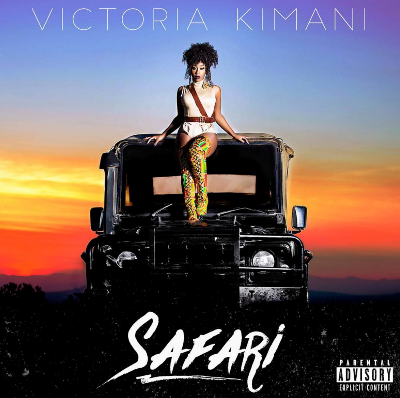On the 3rd of September, Kenyans and Nigerians came for each other’s throats in one of the top 3 international Tweefs of 2016. By sheer coincidence, I happened to be gallivanting round the streets of Nairobi when the war of 140 characters erupted. From my vantage point on the other side, it felt like Nigeria lost the battle. We export so much of our culture through vessels like movies and music that it felt like a lot more Kenyans knew about Nigeria than Nigerians knew about Kenya – your strongest enemy is the one that knows your weak spot.
The so-called battle was just memes and jokes about the common stereotypes of both countries flying around. Understandably, being that she calls both countries home, Victoria Kimani had a hard time seeing the funny side and tried to Mahatma Gandhi the whole situation.
Show Love guys !!! There's no need for Hatred, Jealousy and ignorance WTF ….last time I checked were all black #KenyansVsNigerians smh
— S A F A R I ?? (@VICTORIA_KIMANI) October 29, 2015
Coincidentally, the Choc girl’s debut album perpetuates one of those stereotypes that Nigerians joked about but in naming the album Safari, Victoria immediately answers questions that still linger about her multicultural music identity.
The US-born Kenyan singer has shared her time in the last couple of years between Nigeria and South Africa but she makes it abundantly clear on the trap-inspired “Thass Okay” that her phone code is +254, not +234, not +27 and not +1. On the album’s title track also, she invites her man for a naughty weekend getaway to Kenya’s famous wild side.
Kuja twende Safari
It’s our own little party
We don’t bother nobody
Let’s get body to body
‘Kuja twende’ is Swahili for come let’s go, a number of records on Safari infuse the local dialect in this manner, which should go a long way in silencing the vocal minority of East Africans who’ve heard singles like “Show” in the past and opined that the singer was chasing Nigerian pop success too blatantly. There are records on Safari like “Lover” that toe that line, agreed, but I can assure those East Africans that Victoria’s vision extends well beyond Lagos stardom, she’s coming for the whole continent. This album merges pop sounds from the different countries Victoria has been influenced by. But hidden beneath the club-friendly, sex-driven pop sounds is a very competent R&B singer. Records such as “Fade Away” – a duet with South African heartthrob Donald – and “All the Way” with his compatriot Kuli Chana take elements from R&B of the early 2000’s, so it’s not hard to see what era of music the singer is a fan of the most. In a dry year for R&B around the continent, Safari came in like an unlikely oasis in the African desert.
One of my favorite things about this project is that it actually stands for something. Victoria feels strongly about feminism and women empowerment and Safari pays homage to some of the women that symbolize those values to her. The album is intro’d by a Nina Simone interview where the late icon talked about the important role women played in the civil rights movement and how her “best friend” Miriam Makeba was in South Africa fighting against Apartheid around the same time. Seeing herself as their descendant of some sort, Victoria tries to empower the modern day woman on “Black Girl” but wastes the opportunity to say something profound on a record that lasted less than 2 minutes, the foul-mouthed “My Money” is more her speed.
Ms. Kimani’s brand of women empowerment is less political or socially motivated and more about things like financial liberty, sexual freedoms and remaining a true rebel. She convenes a meeting of African female singers of like mind (Emma Nyra, Lucie and Vanessa Mede) on “SOS” but the stinging “On My D” summarizes that attitude a lot better. Calling herself Africa’s baddest’, Victoria doesn’t have a penis but if she did, she let’s the world know that everyone would want to have a piece of it. The songstress extols similar non-conformist values in Brenda Fasie, clipping an interview where the South African firebrand sounds characteristically bullish about her life choices. “March Along”, the song that preceded the skit, is loosely based around Brenda’s rough start in life and talks about how the late icon was able to make it through.
Safari is slightly confusing in that the role that Brenda and the other powerful women play in Victoria’s own life isn’t always as apparent as the singer’s different cultural influences are. What is however apparent is that spending time in several countries has shaped Victoria Kimani’s view of music and that the singer now sees herself as an ambassador not only in times of Twitter warfare but also for R&B and pop music around the continent.
Listen to the album below


